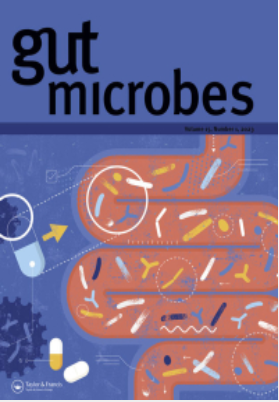从混乱到有序:优化粪便微生物群移植以增强免疫检查点抑制剂的疗效。
IF 12.2
1区 医学
Q1 GASTROENTEROLOGY & HEPATOLOGY
引用次数: 0
摘要
粪便微生物群移植(FMT)与免疫检查点抑制剂(ICIs)的结合为提高癌症治疗效果和克服治疗耐药性提供了一种有前景的方法。这篇综述批判性地考察了FMT对ICIs结果的有争议的影响,并阐明了潜在的机制。我们研究了FMT如何调节肠道微生物群组成、微生物代谢物谱和肿瘤微环境,从而影响ICIs的有效性。本文全面讨论了影响FMT疗效的关键因素,包括供体选择标准、受体特征和给药方案。这篇综述描述了优化FMT配方和系统监测移植后微生物组动态的策略。通过临床试验和临床前研究的综合证据,我们阐明了FMT与ICIs联合治疗不同癌症类型的潜在益处和挑战。虽然一些研究报告了改善的结果,但其他研究表明没有益处或潜在的不良反应,强调了癌症免疫治疗中宿主-微生物组相互作用的复杂性。我们概述了关键的研究方向,包括大规模,多中心随机对照试验,深入的微生物生态学研究,以及多组学方法与人工智能的整合。监管和伦理方面的挑战得到了关键的解决,强调了标准化方案和严格的长期安全性评估的必要性。本综合综述旨在指导未来的研究工作和FMT-ICIs联合治疗的临床应用,在确保安全性和有效性的同时,有可能改善癌症患者的预后。随着这一快速发展的领域的进步,在开放创新和谨慎审查之间保持明智的平衡对于实现微生物组调节在癌症免疫治疗中的全部潜力至关重要。本文章由计算机程序翻译,如有差异,请以英文原文为准。
From chaos to order: optimizing fecal microbiota transplantation for enhanced immune checkpoint inhibitors efficacy.
The integration of fecal microbiota transplantation (FMT) with immune checkpoint inhibitors (ICIs) presents a promising approach for enhancing cancer treatment efficacy and overcoming therapeutic resistance. This review critically examines the controversial effects of FMT on ICIs outcomes and elucidates the underlying mechanisms. We investigate how FMT modulates gut microbiota composition, microbial metabolite profiles, and the tumor microenvironment, thereby influencing ICIs effectiveness. Key factors influencing FMT efficacy, including donor selection criteria, recipient characteristics, and administration protocols, are comprehensively discussed. The review delineates strategies for optimizing FMT formulations and systematically monitoring post-transplant microbiome dynamics. Through a comprehensive synthesis of evidence from clinical trials and preclinical studies, we elucidate the potential benefits and challenges of combining FMT with ICIs across diverse cancer types. While some studies report improved outcomes, others indicate no benefit or potential adverse effects, emphasizing the complexity of host-microbiome interactions in cancer immunotherapy. We outline critical research directions, encompassing the need for large-scale, multi-center randomized controlled trials, in-depth microbial ecology studies, and the integration of multi-omics approaches with artificial intelligence. Regulatory and ethical challenges are critically addressed, underscoring the imperative for standardized protocols and rigorous long-term safety assessments. This comprehensive review seeks to guide future research endeavors and clinical applications of FMT-ICIs combination therapy, with the potential to improve cancer patient outcomes while ensuring both safety and efficacy. As this rapidly evolving field advances, maintaining a judicious balance between openness to innovation and cautious scrutiny is crucial for realizing the full potential of microbiome modulation in cancer immunotherapy.
求助全文
通过发布文献求助,成功后即可免费获取论文全文。
去求助
来源期刊

Gut Microbes
Medicine-Microbiology (medical)
CiteScore
18.20
自引率
3.30%
发文量
196
审稿时长
10 weeks
期刊介绍:
The intestinal microbiota plays a crucial role in human physiology, influencing various aspects of health and disease such as nutrition, obesity, brain function, allergic responses, immunity, inflammatory bowel disease, irritable bowel syndrome, cancer development, cardiac disease, liver disease, and more.
Gut Microbes serves as a platform for showcasing and discussing state-of-the-art research related to the microorganisms present in the intestine. The journal emphasizes mechanistic and cause-and-effect studies. Additionally, it has a counterpart, Gut Microbes Reports, which places a greater focus on emerging topics and comparative and incremental studies.
 求助内容:
求助内容: 应助结果提醒方式:
应助结果提醒方式:


